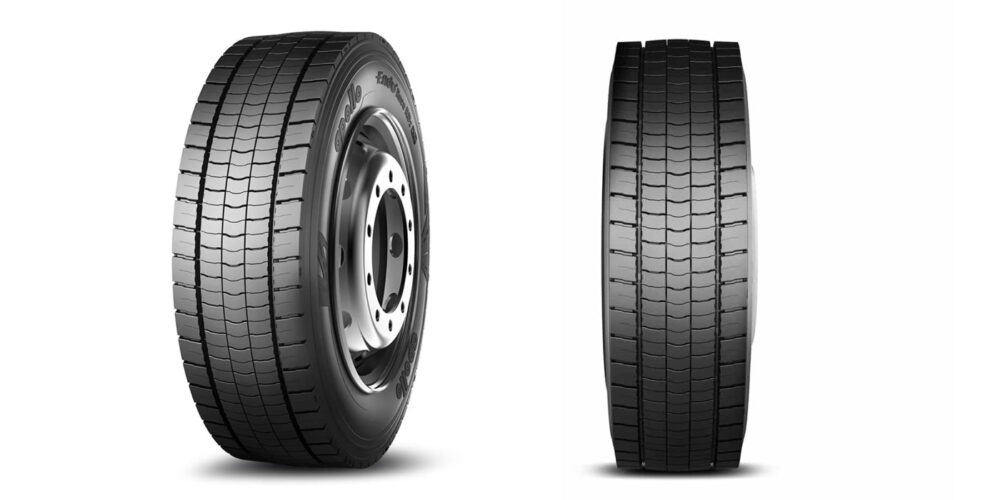Apollo Tires adds new EnduRace truck and bus tire size option
The EnduRace RD2 is suitable medium- and long-distance transport, and is B-rated for performance in the wet and is certified for snow grip.
Apollo Tires has added a new size option for its EnduRace RD2 truck and bus tires, with the launch of a new 295/80 size option. Available across Europe, Apollo says the new options complements the 315/70 and 315/80 variants of its second-generation EnduRace RD2.
Available for 22.5-inch wheels, Apollo says the EnduRace RD2 excels in all weather conditions and offers optimal rolling resistance, extended mileage and durability.
Castrol, Safety-Kleen to launch program to reduce carbon footprint
Alongside partner Safety-Kleen, Castrol is launching MoreCircular – a program to collect used oil and re-refine it into a usable state.

Double Coin adds new high-speed trailer tires
The 16″ all-steel ST Radials expand on the RT500 model, which fill a need that are Double Coin says customers have been requesting.

Reducing refrigeration emissions through diesel particulate filters
Rypos says active DPFs come with an initial cost, but will bring your fleet savings in the long run, while combating climate change.

Thermo King brings BlueSeal air curtains to North America
Feedback from European customers for BlueSeal air curtains cites a lack of obstruction while maintaining an effective barrier.

Other Posts
Apollo Tires adds to EU lineup
The EnduMile LHT, the company’s most durable and fuel-efficient trailer tire, is now available in a 385/55 R22.5 format.

CMA, Double Coin unveil new tires for airport applications
The tires are designed to allow maximum endurance in the airport ground support environment.

Optronics adds new blackout stop, turn and tail lamps
The Thinline surface-mount lamps broaden the FMVSS/CMVSS 108-compliant family of smoke-lens, LED stop, turn, tail, backup and clearance lamps.

Premier Manufacturing marks 100 years in business
Now a part of High Bar Brands, the Oregon-based manufacturer has produced trailer safety components for over a century.






